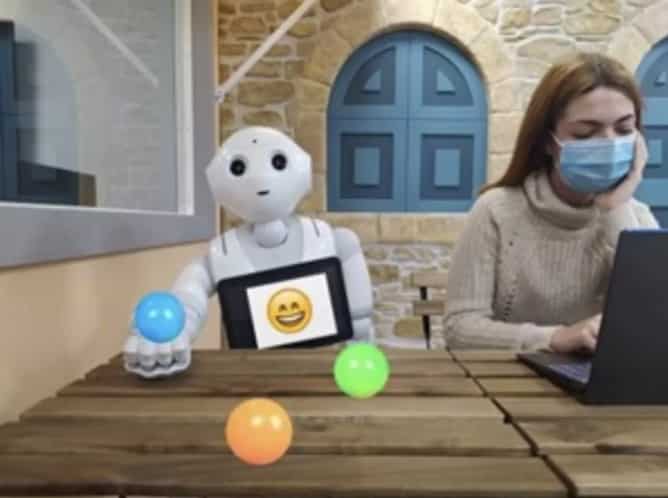Improving the behaviour and social response of children with autism spectrum disorders (ASD) through the use of social robots (RS) is the objective of the ethereal research project ‘Human-Robot Interaction for emotional psychoeducational interventions’, in which Miguel Hernández University (UMH) participates. The initial meeting of the research was held on Friday at the facilities of the UMH’s Institute of Bioengineering, located in the Vinalopó building on the Elche campus.
In addition to the UMH, the Polytechnic University of Cartagena (UPCT), the University of Castilla-La Mancha (UCLM), the UNED and FISABIO participate in this project.
As explained by the director of the Biomedical Neuroengineering Group of the UMH that participates in this study, Eduardo Fernández Jover, “it is a very ambitious and multidisciplinary project, in which experts in paediatrics, biomedical engineering, robotics and neurorehabilitation collaborate to try to offer customised solutions and support systems to professionals working in this field”.
For his part, the UPCT professor who coordinates part of the project and is currently carrying out a research stay at the UMH, José Manuel Ferrández, points out that “the project integrates aspects associated with biomedical engineering such as advanced sensors of physiological signals, artificial intelligence techniques and new human-like robots, capable of teaching these children what different expressions and emotions mean.”
Emotional Processing (PE) belongs to the social cognition refers to mental operations involved in social interactions, including the processes of perception, interpretation and response generation intentions, dispositions and behaviours of others. PE is the ability to perceive, recognise and manage the emotional information.
In addition, recognition of emotions is defined as the ability to identify and recognise emotional states in the faces and / or facial keys are not as gesture and voice. Specifically, this subproject ETHEREAL focuses on trying to improve socialisation and communication in children with ASD.
The project is on the one hand, a continuation of the previous study ’emotional development of innovative technologies’ (20041 / GERM / 16). At the same time, it incorporates important innovations and developments such as the application domain, which represents a quantum leap from mere experimentation with sound without cognitive impairment to designing rehabilitation programs for real patients (ASD) suffering recognition facial emotions.
This project is committed to Social Robotics for the application of these rehabilitation programs, given its easy design and programming capacity. The knowledge acquired in the previous project regarding neurobiofeedback sensors (electrodermal activity and heart rate variability, cameras for the detection of gestures and emotions on faces, etc.) will allow the application of the necessary designs to achieve rehabilitation programs personalised.
The ICT-based tools and techniques are carried out by researchers belonging to the Biomedical Neuroengineering groups of the UMH, the UPCT and the National Distance Education University (UNED). Therapies and the development of trials with patients will be the responsibility of the Department of Paediatrics of the Sant Joan d’Alacant Hospital, under the supervision of FISABIO (Foundation for the Promotion of Health and Biomedical Research of the Valencian Community).
For this, PRT therapy will be used, developed by Robert I. Koegel, LK Koegel, and L. Shreibman, characterised by an increase in the child’s motivation and emotional response, as well as its self-control. The completely free activities will be carried out with children from 3 to 7 years old who meet the criteria of the study.





